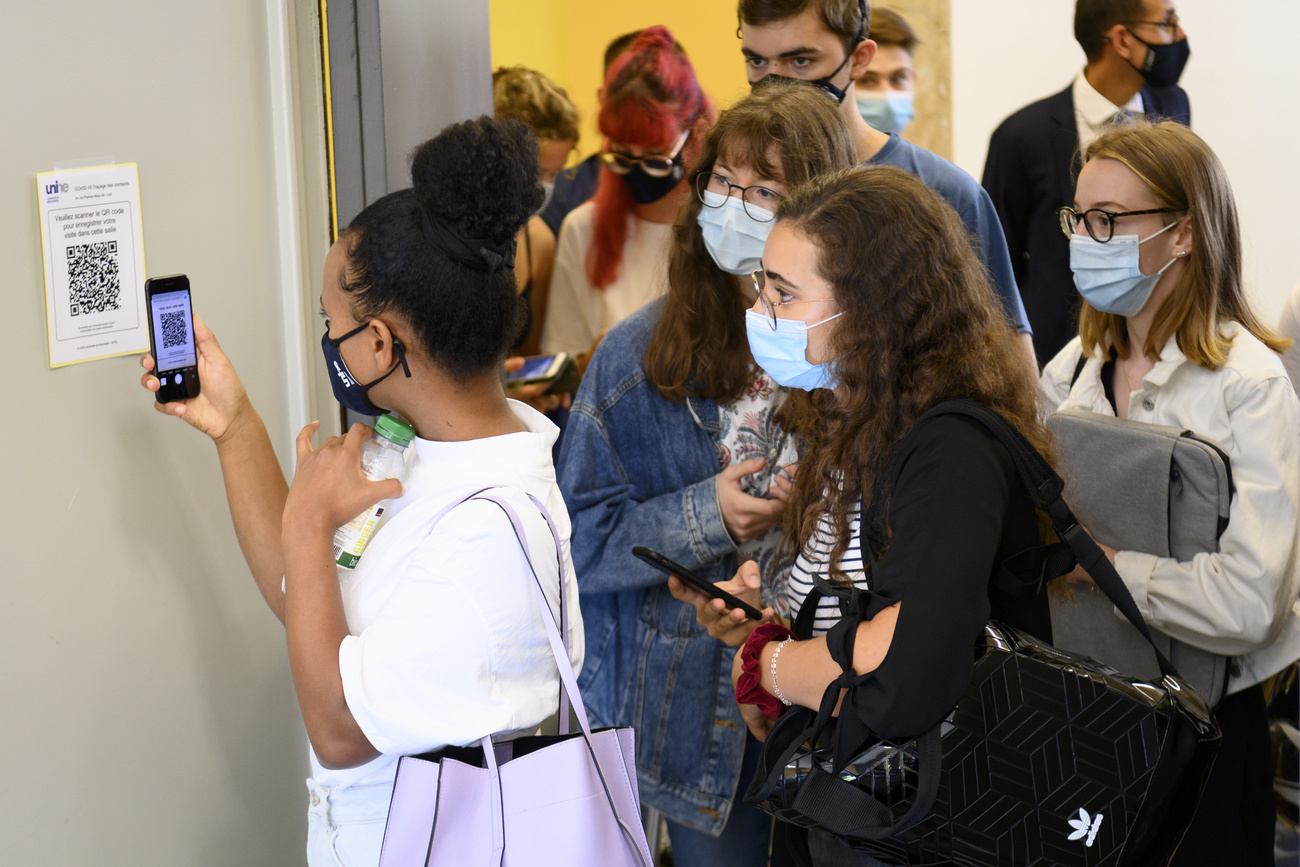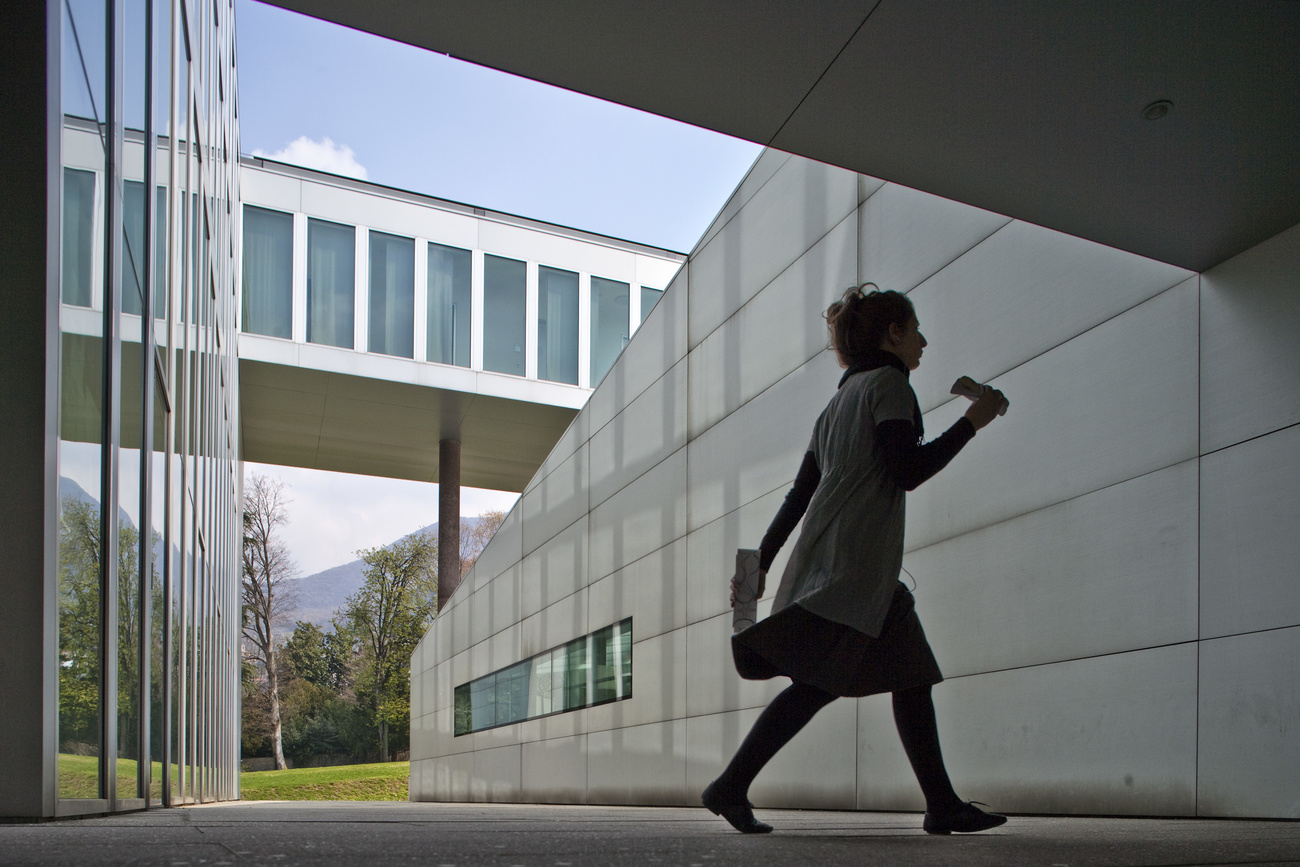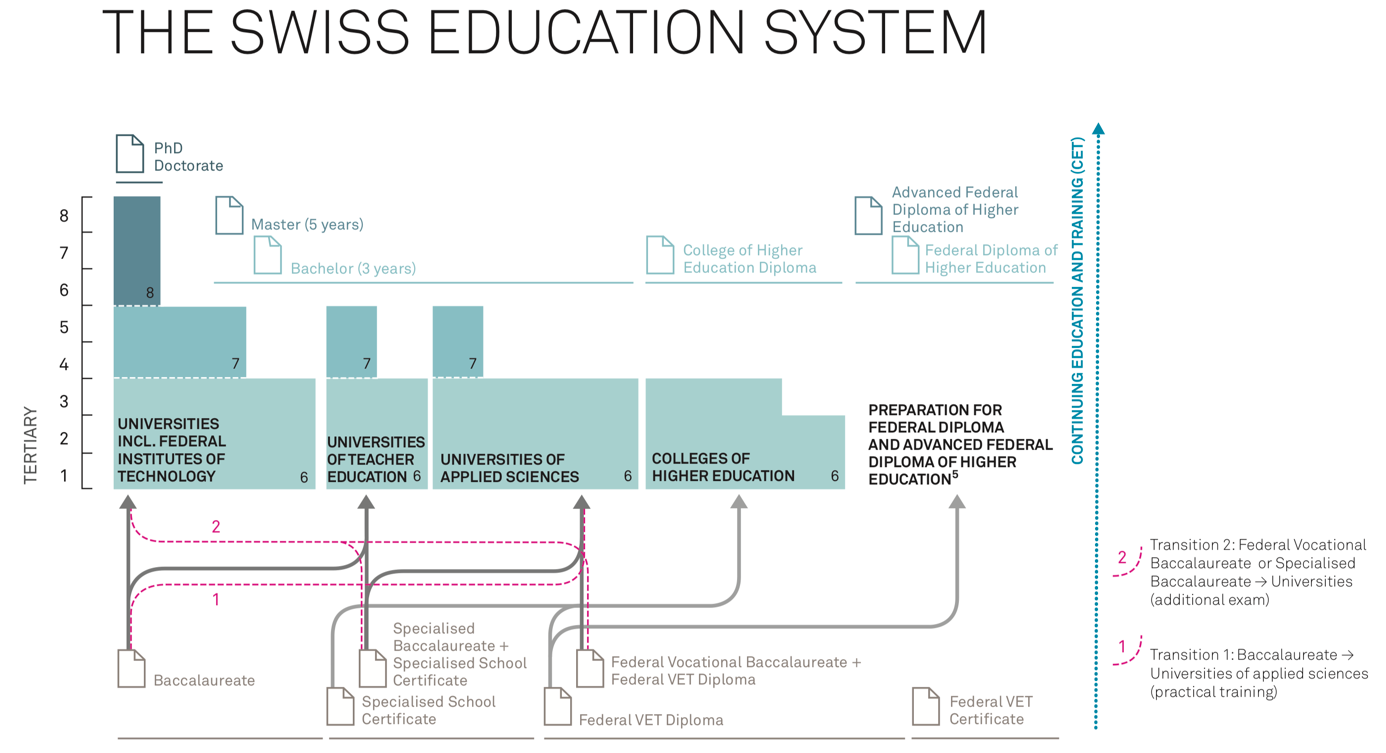
Masks, half-empty lecture halls: Swiss universities’ hybrid approach

The USI university in Ticino, one of the most coronavirus-affected parts of Switzerland, has chosen a 50/50 split between campus and online teaching for the autumn semester. Enrolment numbers among students from neighbouring Italy suggest this approach is popular.
Other Swiss universities have also gone for a hybrid approach as institutions reopen on September 14 under the shadow of Covid-19.
“Collaborating, having conversations with professors, assistants and colleagues that go well beyond classroom discussions, this can hardly be replaced online,” said Lorenzo Cantoni, of the Università della Svizzera italianaExternal link (USI) in the Italian-speaking canton Ticino, explaining why the university had opted for the 50/50 system.
“All of us our feeling thrilled, excited and worried at the same time,” the pro-rector for Education and Students’ Experience told swissinfo.ch ahead of the new semester. Some colleagues and students at USI will require special measures, like live streaming of classes, as they are in the risk categories; first year freshmen will have special welcoming activities; support will be offered to foreign students who have to quarantine after arrival. It will be a “new normal”, he said.
Cantoni says pre-enrolments from students in Italy are up 25% on last year, which might mean the university’s approach is being seen as a reference point in these volatile times. Final numbers will be known in October.
As we have previously reported, the coronavirus situation was particularly difficult for the university’s 1,455 Italian students and members of staff (a third of faculty). Many returned home and some were directly affected by the consequences of the virus.

More
How one Swiss university in a hard-hit region coped with Covid-19
Distance learning, colour tokens
Across Switzerland around 260,000 students started the autumn semester on Monday.
The spring lockdown forced universities into distance teaching, (restrictions were eased after June 8, but many continued with former measures). However re-offering campus lectures will require social distancing, such as through empty chairs between attendees. The wearing of masks will also be widespread. This echoes much of what is happening internationally.
As of August 31, data showsExternal link that 21.3% of nearly 3,000 universities and colleges in the United States are planning for fully or primarily in-person classes, 16% are proposing hybrid models and 33% are planning for a fully or primarily online autumn semester.
In the UK, most universitiesExternal link will teach in-person in some form, following health guidelines. Some academics have raised concerns about the return to face-to-face teaching but the government saysExternal link it is confident that universities are well-prepared.
Among Switzerland’s neighbours, the Italian governmentExternal link has issued a national list of protocols to be followed, including masks and attending some classes remotely. Many universities in GermanyExternal link will use a hybrid model, as in FranceExternal link. All countries have implemented hygiene measures.
At the University of BaselExternal link, Switzerland’s oldest, two-thirds of students will be doing distance-learning. “For students this means that they will have to stay at home for a while and will have less social contact,” rector Andrea Schenker-Wicki told Swiss public television SRFExternal link in August. The university has heavily invested in new technology for this step.
This has also been introduced because the university – like many across the country – has reportedExternal link higher student numbers this year, which will stretch their capacity in these times of social distancing. Many will be freshmen unable to take their traditional gap years, or those choosing to carry on studying due to lack of alternatives because of the economic downturn.
Some institutions have come up with more innovative schemes for the new semester: the University of LausanneExternal link has devised a of three-colour virtual token allocation system that will allow students to be divided into three groups for courses normally attended by a large number of people. These groups will then come in at different times.
Masking up
Students and staff there will have to wear masks, as they will in Basel (members there will receive a certified fabric mask in the post beforehand). At USI, masks are required if social distancing can’t be assured.
Masks are particularly important for the more profession-oriented courses at the Universities of Applied Sciences. Here practical courses for midwifery and physiotherapy will have to take place with participants masked up and paying special attention to hand and clothes hygiene.

More
From ETH to the University of Geneva: understanding Switzerland’s university system
Most students are looking forward to going back to university for at least partial campus teaching, even if there are some uncertainties about how courses will take place either on-or offline, Francesco Bee, co-president of the Swiss Student UnionExternal link and a Basel University masters student, told swissinfo.ch via email.
“It is understandable that universities cannot return to full face-to-face teaching due to the lack of capacity. A mixed approached makes sense,” said Bee, adding so did the mask requirement for certain modules.
Health and care
“There is no right path for all universities. The important thing is to ensure students’ health and that they can participate in all courses,” Bee added.
For example, there must be clear guidelines in terms of access to technology and suitable rooms in which to work for students who can’t venture out due to health risks or who are in quarantine. Universities also need to work on their digital teaching standards, Bee stressed.
First year students will face particular challenges settling in. He said care must be taken in order to integrate them into everyday student life. It’s a sentiment shared by Cantoni of USI.
“Informal learning is such a key part of the university experience.”

In compliance with the JTI standards
More: SWI swissinfo.ch certified by the Journalism Trust Initiative































Join the conversation!